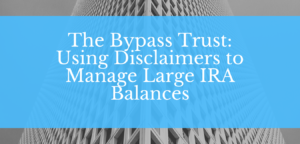Millionaire Taxes- The Debate is On

Millionaire Taxes- The Debate is On. How many people are millionaires in the United States? According to recent statistics the number of people in the country with a net income of $1 million or more reached 9.63 million in 2013. That might sound like a lot, but compared to the total U.S. population that number is actually quite small. Regardless, there is no argument that the wealthy are taxed more than the middle class. However, according to a recent report, many people who aren’t actually in the wealthy category are still being taxed like they are.
Targeting the Wealthy
Nearly a dozen states have either raised or tried to raise taxes on the wealthy recently, including both New Jersey and Illinois, who recently voted against such measures. However, since 2009, 10 states have either raised income taxes for all taxpayers or for those in the highest tax bracket. Another state, Washington, rejected an increase on the wealthy in 2010.
The Affluent Hurt the Most
Of course, the wealthy will always be taxed more, but most, if not all of these states are actually nailing those taxpayers in the affluent category as well. In fact, it seems that these so-called “millionaire taxes” are not just for millionaires. Often, people who make $200,000 are also hit with a higher tax rate and in some cases, such as in the state of Maryland, single people who make as little as $100,000 ($150,000 or more for joint filers) in a year are subject to a higher tax rate. In the recent past California and Minnesota have also adopted new tax brackets for those who make more than $250,000.
The Consequences
Many economists argue that taxing the wealthy is not a good way to help the economy, especially in the long run. Evidence suggests that forcing the wealthy to pay more taxes actually hurts the country’s productivity and its economic growth. Another problem that states face is losing companies altogether. Many corporations have recently packed up and moved from states with high corporate and income taxes to states where the tax bill is much lower.
Not Giving Up
However, despite the fact that there are several negative aspects of raising taxes for the wealthy, there are many who still think that’s the best method to help boost the economy and create more economic equality. That’s why so many states continue to introduce legislation designed to penalize the wealthy.
Never-Ending Battle
The bottom line, when it comes to the so-called “millionaire tax” the debate will never end. Those who think the wealthy should pay more will continue to argue their point. That includes lawmakers who will most certainly continue to push legislation aimed with that goal in mind. On the other side of the equation, those who oppose taxing the wealthy unfairly will continue to fight theses efforts.
GROCO – A Wise Investment
In any case, the wealthy are already heavily taxed, which means it’s important for them to utilize every tax break and advantage they can get in order to keep as much of their money as possible. That’s why contacting GROCO is a smart investment. We can help you maximize your tax planning and thereby get the most out of your income tax return.
We hope you found this article about “Millionaire Taxes- The Debate is On” helpful. If you have questions or need expert tax or family office advice that’s refreshingly objective (we never sell investments), please contact us or visit our Family office page or our website at www.GROCO.com. Unfortunately, we no longer give advice to other tax professionals gratis.
To receive our free newsletter, contact us here.
Subscribe to our YouTube Channel for more updates.
Considerately yours,
GROCO, GROCO Tax, GROCO Technology, GROCO Advisory Services, GROCO Consulting Services, GROCO Relationship Services, GROCO Consulting/Advisory Services, GROCO Family Office Wealth, and GROCO Family Office Services.

Alan L. Olsen, CPA, Wikipedia Bio

Proud sponsor of the AD Show.

Personal Finance 101
Personal Finance 101 The subject of personal finance is very broad, but as a beginning, I would like to discuss what I consider the foundations of personal finance: Security, Stability, Growth and Protection & Management. Security Security to me means that I am prepared for the “hit by a bus” scenario. I have life insurance…
Saving for Retirement: 5 Steps to Building Significant Wealth
Saving for Retirement: 5 Steps to Building Significant Wealth Are you saving enough money for retirement? Do you know how much money you need to accumulate in order to retire? Are you concerned about how you should be saving for retirement? The simplicity of these questions can lead many people to believe that there is…
The Bypass Trust: Using Disclaimers to Manage Large IRA Balances
The Bypass IRA Trust: Using Disclaimers to Manage Large IRA Balances By Mary Kay Foss California CPA, December 2001Trying to fund a bypass trust can be problematic if clients only have a residence and a large retirement plan as their major assets. On the surface, a residence isn’t a good asset for a bypass trust…
Tax Break for College Tuition Payments
Tax Break for College Tuition Payments If you are writing a college tuition check, there may be a hidden tax break that will allow you to deduct a part of your college tuition payment. In order to do this, you must utilize a ‘Section 529’ College Savings Plan in one of the 26 states…



